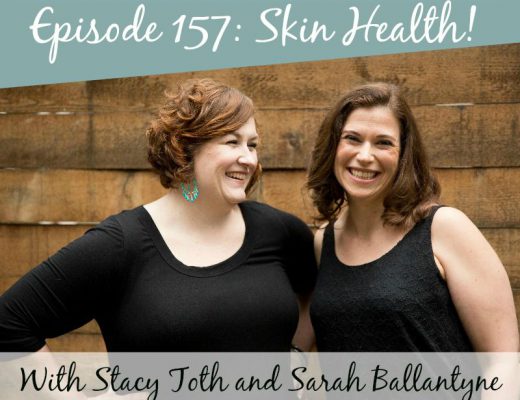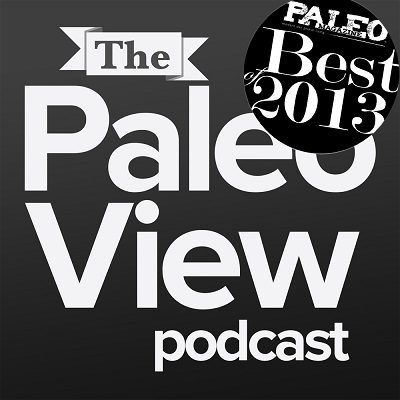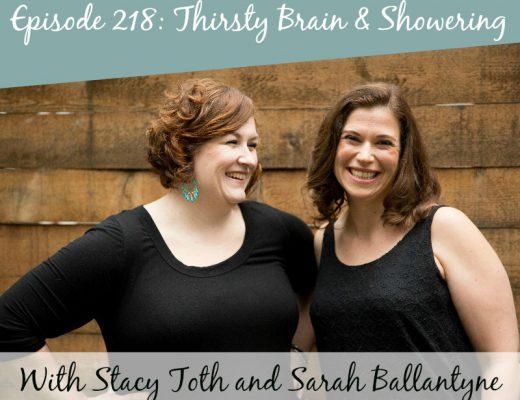Ep. 272: What’s the Deal with Essential Oils?
In this episode, Stacy and Sarah wade into essential oils and parse out what the risks and what the benefits of using them might be.
Click here to listen in iTunes
or download and listen by clicking the PodBean Player below
![]()
If you enjoy the show, please review it in iTunes!
The Paleo View (TPV), Episode 272: What’s the Deal with Essential Oils?
- News and Views (0:41)
- Stacy fully recommends Stranger Things, a show she watches with her children and dressed as the cast for Halloween
- Come see Sarah on Book Tour! And pick up some Vital Proteins! Come and meet her! Good times and hugs! And RSVP!
- Meanwhile, Stacy bought Essential Oils. She couldn’t wait for Sarah’s research.
- She’s using them in oil diffusers to make her boy and lizard smelling house smell better without using toxic fragrances.
- But she needs to know if they help people, if they’re toxic and if they kill cats
- Sarah’s links on Essential Oil scientific research!
- Sarah found thousands of studies on essential oils, so focused on reviews
- Aroma Therapy and Essential Oils (An overview of use of essential oils as aroma therapy for cancer patients)
- Ingested essential oils can cause liver damage.
- Biological effects of Essential Oils — a review
- Essential Oils’ Chemical Characterization and Investigation of Some Biological Activities: A Critical Review
- Major bioactivities and mechanism of action of essential oils and their components
- Sarah’s research!
- First of all, divide essentially uses in two ways: use as aromatherapy and use topically or orally.
- Essentially oils are volatile compounds (they reacted easily with the environment), complex components and usually have a strong odor extracted from botanicals.
- Extracted by steaming them out or pressing out, not solvent extraction
- Over 3000 essential oils are out there, and each one has 20-60 chemicals that make it up. Among those, 2-5 are the dominant, key compounds.
- Scientific research seems to indicate the synergy of all the compounds may be key to the effects of essential oils, not just the presence of the key compounds.
- Key compounds: triterpenes, aldehydes, alcohols, ketones, ethers, oxides, esters, amines, amides, phenols, heterocycles, other terpenes. All small molecules, and thousands have been found in essential oils.
- These are phytochemicals and can be anti-inflammatory, immunomodulatory, anti-angiogenic (prevent the formation of blood vessels, great for fighting tumors), apoptosis (helps cells dies), anti-allergy, anti-mutagenic, anti-microbial, insect repellents, etc. They are an interesting avenue for research for many reasons. Antibiotics, disinfectants, cancer drugs, food preservation
- There are tables and tables of essential oils and what microbes they can kill.
- But they are cytotoxic: they rupture membranes and cause cells to die. So they ARE NOT SPECIFIC to bad microbes! They’ll kill your friends in your gut! NOT GOOD!
- Meanwhile, terpenes are damaging to the liver. That’s also NOT GOOD!
- They may also cause a leaky gut.
- Drinking essentially oils is probably not a great idea without a doctor’s recommendation.
- There are some essential oil compounds that are more specific, though, methylenonylketone compound is effective to kill influenza. Others have been shown to kill E. coli, Staphylococcus, etc. But some kill the good’uns. Eucalyptus is good for staph, pneumonia, strep, enterobacter, but also, lacto bacilus, bacilus cereus, and other probiotics.
- Probably not a problem for aromatherapy, but ingesting is complicated! We don’t know everything that these properties do!
- Some have good anti-inflammatory properties: tea tree oil, clove oil, parsley oil, lemongrass oil, metharvensis oil
- How do you find what an essential oil does and what warnings there are? NAHA and FDA have information about what has been deemed safe (and most have) but Sarah goes to PubMed to research directly. She doesn’t think there’s much reason to ever ingest essential oils.
- Many studies are done on cultured cells and on rodents, not necessarily a direct comparison to what would happen to a person.
- But if you want these effects, just eat the whole food! This will protect you much better than the concentrated form.
- But what about the cats!?
- There have been no studies of cats and essential oils. All evidence is anecdotal, but that doesn’t mean it’s not true. Though cats livers aren’t as robust at taking care of toxins as people and dogs.
- Stacy isn’t using them all the time, only using them in certain rooms, and allowing the cats to escape if they want to.
- Overall, what is the deal?
- The science is complicated. There are many interesting studies, but lots of pros and cons.
- With over 3000 different oils, its hard to narrow it down and know everything about it.
- Aromatherapy is probably safe, safer than oral consumption for sure!
- Only use oral consumption with the supervision of a doctor who knows what they are doing.
- The science is not very strong for most purported benefits. Most papers indicate that we need more research. But, really, if its from an edible thing that you want the benefits from, just eat the thing.
- Sarah says to go to pub med for information on each ingredient and make your own decisions.
- Rate and review us. Goodbye!
- Outro (1:03:09)





